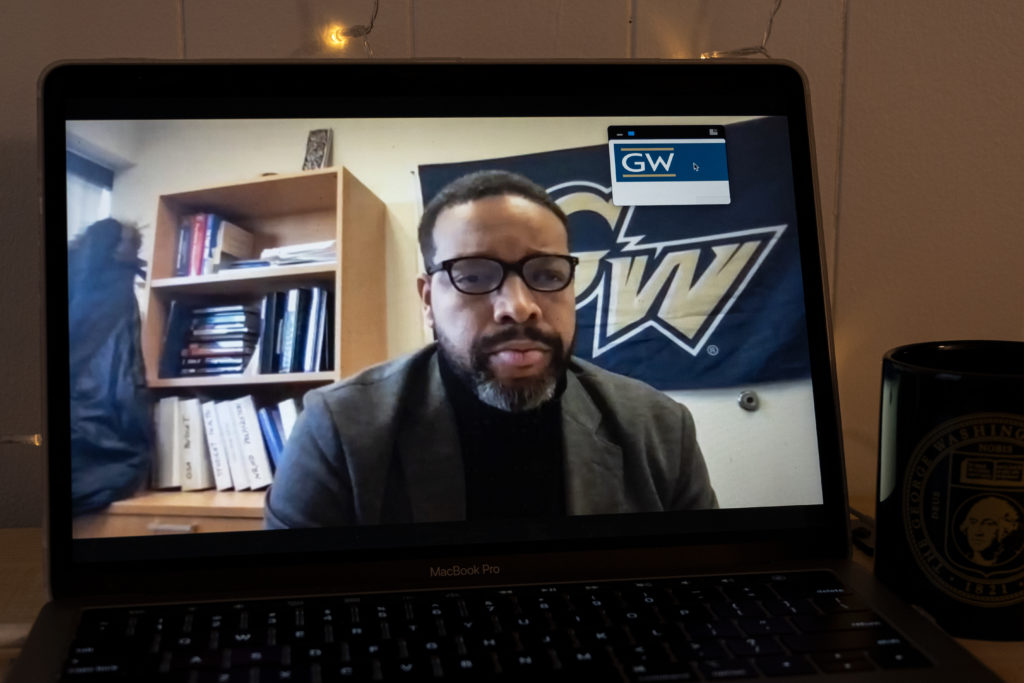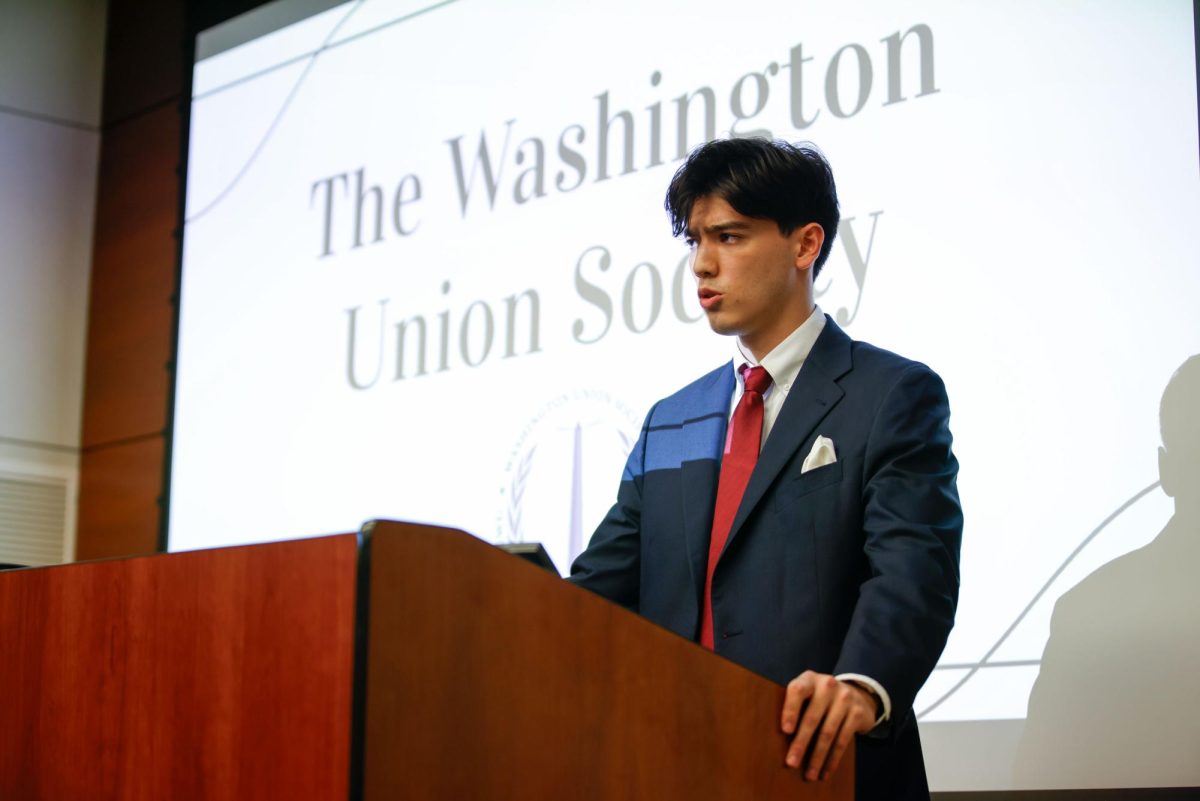The School of Medicine and Health Sciences and the Medical Faculty Associates hosted a virtual discussion detailing the mental health and wellbeing services available to University health care workers Wednesday.
Administrators and health care professionals said SMHS, MFA and GW Hospital employees can access counseling and stress-reduction services to prevent further burnout and stress from the COVID-19 pandemic through the Resiliency and Well-Being Center that launched last year. Lorenzo Norris, the center’s director and the chief wellness officer for SMHS, moderated the event, where medical officials promoted the center’s resources and explained underlying factors causing mental health issues impacting the health care workforce.
Barbara Bass, the dean of SMHS and the MFA’s chief executive officer, said health care workers’ anxiety and job dissatisfaction have increased since the start of the pandemic. She said the pandemic required health care workers to work long hours and continuously provide services to patients despite struggling to identify personal mental health issues.
“Let’s realize that we’re all human in this, and let’s focus on how we can, as a community, create a healthy community that’s supportive and inclusive, that will really help everybody get through this rotten time and into a really great future,” she said.
Bass said donors gifted funds to support the center’s initiative to boost mental health conditions among University health care faculty and staff. She said the additional funding will enhance the quality of health care that GW institutions provide.
“It’s a really fundamental core purpose to have people who feel supported and well as they do this important work with us,” she said.
Leigh Frame, the center’s associate director, said the center will focus most of its resources on whole health programs that offer services to health care workers, like peer support and intervention training, healthy lifestyle maintenance workshops and healthy exercises and nutrition information. She said the programs will act as a support system for stressed health care workers in times of need.
“Everyone needs to have a mental break every once in a while,” Frame said. “And often it’s well worth the time that you spend with that break. You’re going to come back. You’re going to be fresh, recharged. You’re going to do better work for having that time.”
Frame said University health care workers will be able to access professional coaching sessions, counseling services and employee team-building retreats in the near future. She said the center will continue to add more services and partner with other District-based organizations, like the Medical Society of the District of Columbia in the next few years.
“We are trying to serve you in the best way possible, but we don’t want to stand something up just for the sake of standing it up,” she said. “We want to make sure we’re doing it right.”
Deborah Harrison, the MFA’s senior director of human resources, said the MFA already offers mental health support services like access to professional counselors to its employees and their families through SupportLinc, an online counseling referral service. She said the SupportLinc clinicians offer five counseling sessions per year specific to each University health care employee and their individual family members’ mental health issues like anxiety, grief and marital conflict.
She said employees can also use the counseling resources to manage stress-inducing issues like elder care, childcare, household services and pet care.
“We need to make sure that we take care of ourselves as we navigate, not just through the pandemic, but as we work together through the multi-facets of health care,” Harrison said.
Viktoriya Karakcheyeva, the center’s behavioral services director, said officials recently launched a new service within the center called the “Care for the Caregivers” program, which trains SMHS and MFA faculty and staff to identify colleagues in need of support and direct them toward employee resources and programs. She said the program has already trained 47 faculty and staff members between SMHS and the MFA, and she hopes to expand the trainings to University health care employees in the upcoming months.
“We have established monthly supervision meetings and are hoping to build up more with this program by offering support to our peers and identifying staff that can be our champions and pioneers in connecting people with these wonderful resources that we just heard about and that GW has to offer,” she said.
Sophia Goedert contributed reporting.








